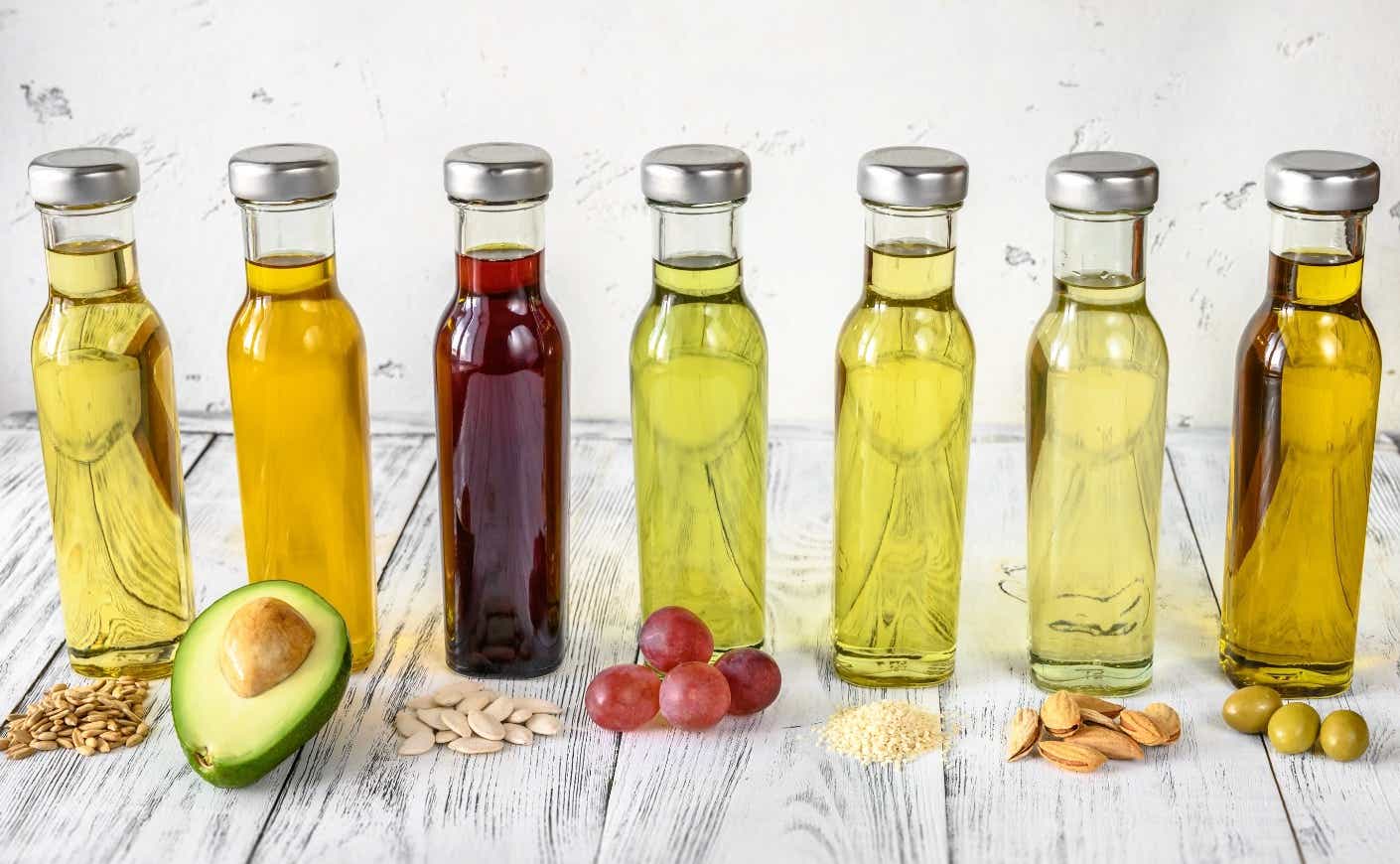Sometimes making even the smallest changes can make a difference when it comes to your health, and that could be as simple as mixing up the type of oil you’re using while you’re cooking. After all, there’s no shortage of healthy options, ranging from coconut and avocado to olive oil.
While most oils offer health benefits, they all differ and others can be potentially detrimental to your overall well-being when cooked at high temperatures. To help us make sense of them all, we turned to board-certified nutritionist Mia Rigden and nutritional psychiatrist Uma Naidoo, M.D.
What are considered the healthiest cooking oils?
In general, Rigden recommends using unrefined rather than refined cooking oils because they’re less processed and have fewer added chemicals. But she adds that making healthier choices doesn’t have to complicate your cooking: “If you keep unrefined olive oil and avocado oil in your pantry, you should be able to make everything that you want and get the flavor you want.”
Olive oil
Olive oil is famously the central ingredient of the heart-healthy Mediterranean diet and is commonly drizzled on foods like salads, pasta, and bread.
Rigden recommends opting for extra-virgin olive oil because it offers more nutrition. In fact, it contains more than 30 different phenolic compounds, which are powerful antioxidants that help protect the body against free radicals. If you’re looking for a good one, we recommend this one from Thrive Market or Brightland.
Avocado oil
In addition to being rich in Vitamin E, avocado oil is packed with healthy monounsaturated and polyunsaturated fatty acids. Its light, fresh, and buttery taste also make it extremely versatile when it comes to cooking everything from meats and seafood to vegetables.
Plus, you don’t have to worry about how you cook it because it contains a high nutritional value at both low and high temperatures, according to a 2019 review in the journal Molecules. The only downside is that avocado prices have skyrocketed in recent years, almost doubling to $2.10 in 2019 alone. But you can find some good deals on oils at Fresh Direct or iHerb.
When healthy cooking oils become unhealthy
If you aren’t a fan of avocado or olive oil, then don’t worry, you still have several options. Dr. Naidoo recommends flaxseed, walnut, and pumpkin seed oils, but she cautions against using these when cooking at high temperatures because they can actually be bad for your health.
“When certain oils reach a smoke point, they can actually become more toxic because of the byproducts from that higher heat cooking, and those substances can be damaging to the body,” she explains. “They can even be, in certain instances, carcinogenic.”
Coconut oil, on the other hand, is a safer alternative and especially ideal for frying, though there’s some debate around whether its high saturated fat content makes it a healthy option.
What are some of the advantages of using healthy cooking oils, including avocado and olive oil’s health benefits?
Contrary to popular belief, not all fat is bad for your health. “People get confused because they don’t want to be fat, but fat doesn’t necessarily make you fat,” Rigden explains. “It’s the sugar and the carbohydrates.”
Healthy fats like avocado give you energy, protect your organs, support cell growth, keep cholesterol and blood pressure under control, and help your body absorb vital nutrients. What many people also may not realize is that healthy fats are important for your overall brain health.
“The brain is made abundantly of fat, so for optimal cognitive function and mental fitness, it’s important to be eating healthy fat in the form of things like olive and avocado oil to support the healthy brain tissue,” Dr. Naidoo tells us.
So how much fat do you need in a day? In order to get all of the essential fatty acids, women need about 5 to 6 tablespoons a day, while men need about 6 to 7 tablespoons, according to the U.S. Department of Agriculture.
What are some less healthy cooking oils?
In general, both nutritionists suggest avoiding consuming too many vegetable or seed oils. While the American Heart Association recommends canola and corn oils because they contain less saturated fats, Rigden says these types of oils also contain a lot of omega-6s fatty acids, which are believed to lead to chronic inflammation.
Though this can vary widely on how they’re processed, these are the other plant oils to be careful of:
- Soybean oil
- Safflower oil
- Sunflower oil
- Grapeseed oil
- Sesame oil
- Peanut oil
If these sound familiar, it’s likely because they’re often blended and sold under the name “vegetable oil.” Dr. Naidoo also recommends steering clear of using this highly processed oil for the same reason: It can create an unhealthy imbalance in your omega-3s to omega-6 ratio.
At the same time, both nutrition experts emphasize that it’s all about moderation — and other cooking fats like butter, particularly ones that are grass-fed, can be perfectly healthy choices too in limited amounts.
“Having some butter and those types of oils are OK, you just don’t want to use it all the time every single day,” says. Dr. Naidoo.












